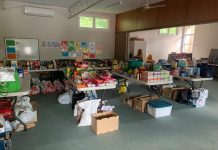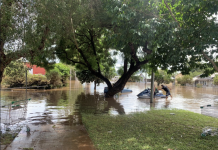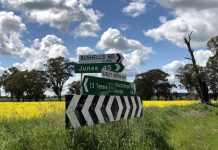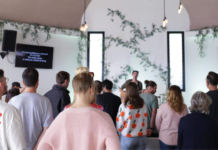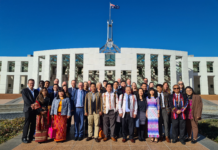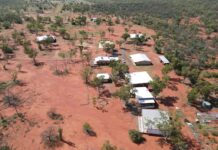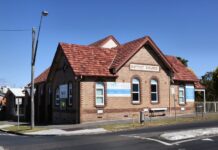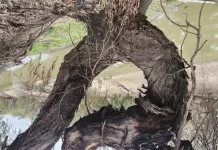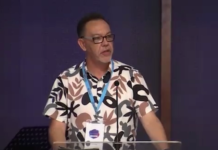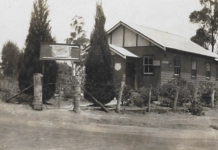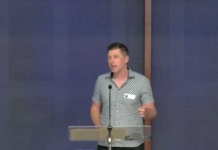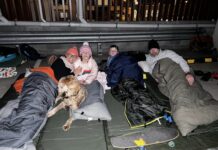There’s no doubt that the needs of a community change and multiply after a crisis.
Over the past few years, the Baptist Association has shifted our focus to incorporate both immediate response and recovery after a disaster, and long-term resiliency building.
“It’s about being the persevering presence of Jesus in these hard spaces,” says Marbuen Diaz, Team Leader of the Church Witness Team.
Northern Rivers
 The first intentional resiliency project began in Lismore after the floods in early-2022. The work is headed by Steve Hales, Emergency Relief and Recovery Coordinator for the Lismore Area and has taken many different forms in the course of the project.
The first intentional resiliency project began in Lismore after the floods in early-2022. The work is headed by Steve Hales, Emergency Relief and Recovery Coordinator for the Lismore Area and has taken many different forms in the course of the project.
Originally, the Northern Rivers churches were involved in the crisis response, providing clean up support, hampers, food and other essentials to those who had lost homes and livelihoods in the flood. Now, almost two years on, the focus has shifted to mental health support and chaplaincy. “Some people impacted by the floods just want to talk about what they went through,” says Steve, “other people aren’t ready to talk about it, and other people don’t want to talk about it because they want to move on and leave it behind”.
The team from Lismore and other local Baptist Churches have sought to respond to the needs of the community as they emerge, with many locals still needing practical support to get back into their homes. This work has incorporated a Narrative Therapy project, which is now being developed into a “coffee table book” as a way for Lismore residents to share their own stories of resilience.
Steve describes how his focus has changed over the course of the project, and now focuses on the question: “What’s the best way we can use the resources available to us to serve the community where it isn’t the mass crisis stage, but the issues are still very real?“
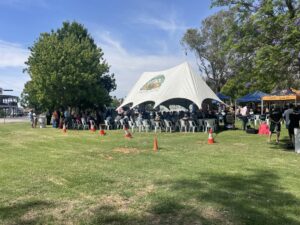 Western Districts
Western Districts
Simon Gellert has been working in the recovery and resilience space in the Western Districts. Multiple disasters in the last few years, including drought, covid, mouse plague and floods, have made the communities in this region vulnerable and at risk. The November 2022 floods caused significant devastation and exposed these vulnerabilities. Simon’s role has been diverse, working across many small towns and communities and responding to their unique needs.
Simon reflects on the significant amount of time he had to invest in building trust with people in the small towns he was working in, particularly as many of the towns didn’t have a local Baptist church for him to springboard relationships off.
Simon’s role has largely been focused on chaplaincy and pastoral care, including at the crisis support hubs, men’s sheds and remote schools. Simon articulates his role as “being a presence with a purpose”. (The purpose being to point people beyond their present circumstances to the Christian hope in Jesus.)
The work has also involved a lot of networking, with churches, community organisations, businesses and government. Simon has spent time supporting churches and their leadership to work in the flood relief, recovery and preparedness spaces.
Simon and Steve’s roles have been very different, responding to the unique needs of their communities after disaster. But there are also similarities. They both speak about how their work has shifted over the course of the projects and now a large part of their work is “supporting the supporters”, as the vicarious trauma and burnout begins to surface as some stoic community members have been carrying heavy burdens for months or years. This ranges from first responders, to teachers and healthcare workers, through to hairdressers, volunteers and other informal community supports.
Pray for Steve and Simon as they pioneer this work. Pray for wisdom and guidance as they journey with community through healing and resilience building.

